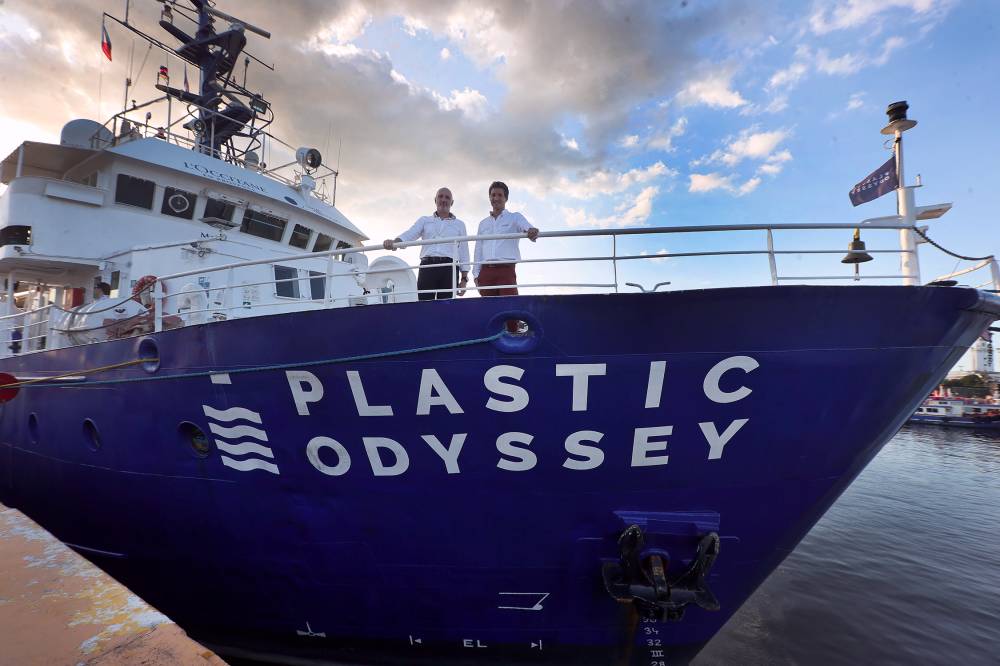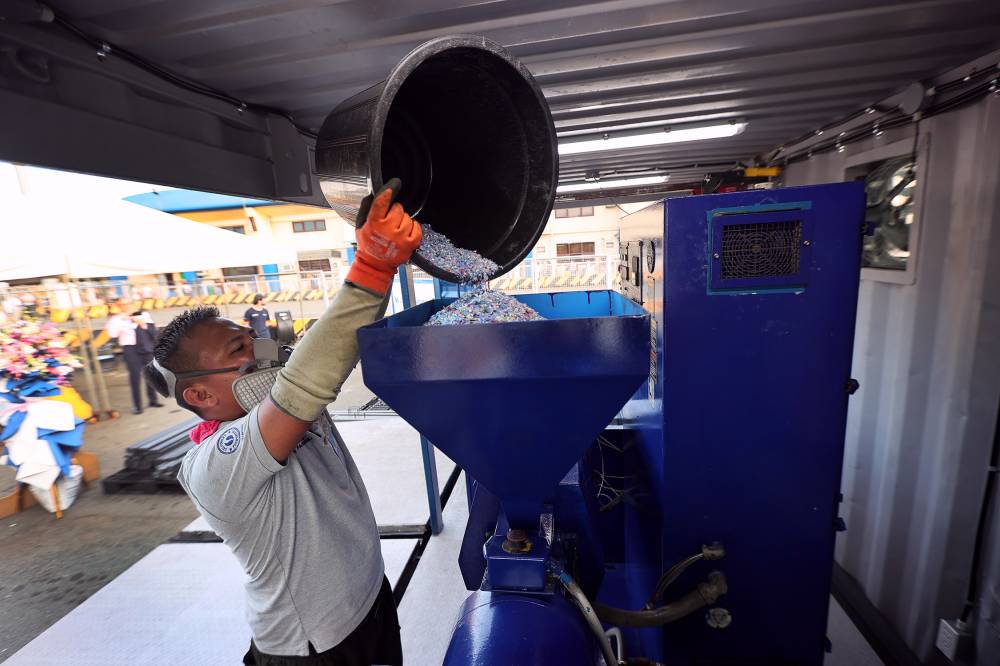French recycler pushes tech-aided war on plastics in PH visit

As a sailor, Simon Bernard said he is passionate about taking care of the ocean.
This has led the 33-year-old Frenchman to establish Plastic Odyssey in 2016—the name of both his enterprise, based in the French port city of Marseille, and its laboratory vessel which travels around the world to find innovative solutions to plastic waste.
That year, he said, “I took part in an expedition that went to Dakar, [port city and capital of] Senegal … That’s where I saw the plastic going into the ocean, because there’s so much plastic in Senegal, everywhere,” the former merchant navy officer told the Inquirer.
Because of that experience, Bernard said he decided to organize an “expedition” to some of the world’s most polluted countries and explore best practices in combating plastic waste.
In 2022, the MV Plastic Odyssey left Marseille with a crew of 20 to embark on a three-year voyage around the world.
The ship, which used to be an oceanographic vessel, was refitted to become a mobile laboratory carrying recycling equipment that can turn plastic waste into blocks and other useful materials.
Bernard said the goal of the expedition was to establish a “Wikipedia of plastic recycling,” documenting its methods and processes as practiced in various countries.
He also intended to spread that knowledge to local entrepreneurs who may find what they learn to be useful to their businesses.
“Aside from just learning how to recycle different kinds of plastic, it’s also about selling items made of that recycled plastic,” Bernard said.
Manila visit
Last month, the MV Plastic Odyssey visited the Philippines—the third largest contributor of plastic pollution of the seas after China and Indonesia, according to a 2021 report by the World Bank.
When the vessel docked in Manila on Nov. 27, Bernard and his crew invited 10 entrepreneurs onboard to share with them some of the innovations that Plastic Odyssey has learned about plastic recycling.
Among these businessmen was Joseph Valdez, CEO of Klimatech, a company that develops renewable technologies.
“They showed us the machinery that they are using,” Valdez told the Inquirer. “I was a bit surprised that there’s a machine that converts plastic to diesel … That could basically help us, considering that we have fluctuations in gas prices.”

Valdez said the recycled plastic can also be used as construction materials for Klimatech’s products such as vertical wind turbines, which convert wind energy into electricity.
“When it comes to wind turbines, the first thing that comes to our mind is the horizontal, which is predominantly used in the Philippines,” Valdez explained. “For us, it’s vertical … The advantage of having [it] vertical is that it requires only a small space.”
A vertical wind turbine can occupy less than a square meter of land, he said. But it must be installed in an area that has enough wind intensity.
With the plastic waste it collected, Klimatech grounded and sheet-pressed that material, then molded these into turbine blades, Valdez said.
“Our first adopter was Shell Foundation. We basically installed three [turbines] in one of their sites,” Valdez said.
Efforts in PH business
To be sure, the use or conversion of plastic waste is already being applied by some of the country’s leading companies—in the construction of roads, production of alternative fuels, and other major projects.
But there is no “industrial-scale” campaign yet to entice the public to offer their used plastics in exchange for cash—the practice already in some developed countries.
Apart from those efforts, there is no limit to the methods that ordinary people can come up with to convert plastic waste, Valdez said.
“It depends on the material or plastic they will use,” he said. “If ordinary Filipinos can basically come up with a product from, let’s say, cellophane, they can recycle it and make it into a bag, then it would be helpful.”
Valdez believes recycling plastic can only have a significant impact if the government implements policies to encourage such initiatives.
He said the government as well as big business can go a long way in promoting the use of recycled plastics to consumers.
“We can lessen the impact of plastic pollution, [but] it should be complemented by government policies. Because if the government [pursues that] mandate, it will speed up the implementation of recycling initiatives,” he said.
Bernard said finding solutions to a problem like plastic waste requires innovation and creativity.
“[It’s] about exploring ideas that exist, because in every country we go to, we find people with crazy ideas but nobody knows them. So our job is to go and document [these ideas] and highlight the job that is done already,” he said.
















